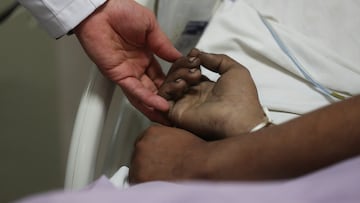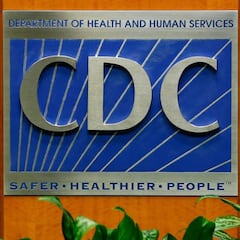What is bubonic plague? Symptoms, causes and treatment
A resident of Oregon caught a rare case of the historic disease which once killed millions in 14th century Europe.


A well studied but now rare disease has resurfaced in the US. Bubonic plague has been detected in an Oregon resident, catching the disease from their pet cat.
“All close contacts of the resident and their pet have been contacted and provided medication to prevent illness,” said Dr Richard Fawcett, Deschutes county health officer, in a statement.
Also known as the “Black Death,” bubonic plague a notorious infectious disease that has left an indelible mark on human history. Throughout the Middle Ages, bubonic plague swept through Europe, Asia, and Africa, causing devastating pandemics that decimated populations and altered the course of history.
BREAKING | CDC Announces One-Day Isolation Period for Bubonic Plague https://t.co/dPfmyi0GD0
— Leta McCollough Seletzky, JD 🐳 (@LaSeletzky) February 13, 2024
Today, while no longer as widespread or lethal as it once was, bubonic plague still poses a threat in certain regions of the world, including America.
Symptoms
Symptoms begin two to eight days after infection. Bubonic plague typically manifests with sudden onset symptoms, including fever, chills, headache, muscle aches, weakness, and fatigue.
However, its most distinctive feature is the development of painful, swollen lymph nodes, known as buboes, in the groin, armpit, or neck. These buboes can become tender and may eventually rupture, leading to pus drainage. Additional symptoms may include nausea, vomiting, abdominal pain, and diarrhea.
Causes
The bacterium Yersinia pestis is behind the plague. It is primarily transmitted to humans through the bite of infected fleas.
Related stories
Historically, bubonic plague thrived in rodent populations, particularly rats. Humans would become infected when bitten by fleas that had fed on infected animals. Contact with tissues or fluids from infected animals, or inhalation of respiratory droplets from individuals with pneumonic plague, also lead to transmission.
Treatment
Prompt treatment with antibiotics is vital for managing bubonic plague and preventing severe complications. Antibiotics such as streptomycin, gentamicin, doxycycline, and ciprofloxacin are commonly prescribed. Bubonic plague can progress to more severe forms, such as septicemic or pneumonic plague, which are associated with higher mortality rates.

